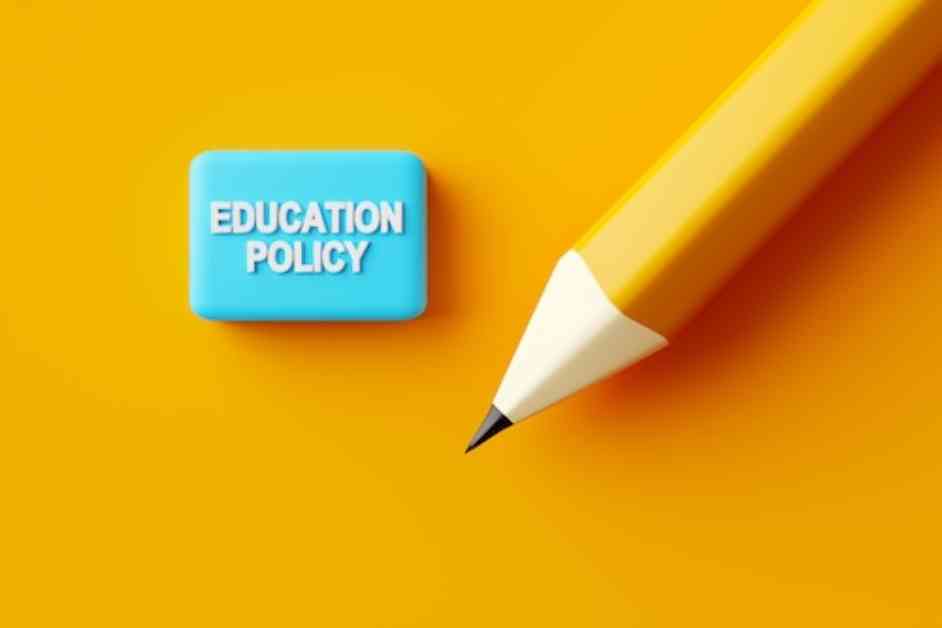Inaugurated on January 20th, Donald Trump assumed the role of the 47th President of the United States. Amidst the anticipation and uncertainty surrounding his administration, educators across the nation are left pondering a crucial question – what do they want from Trump?
As we delve into the intertwined realms of education and policy, the landscape appears muddled with promises, concerns, and a fervent desire for recognition. Trump’s campaign trail resonated with pledges to dismantle the U.S. Department of Education, purge “woke ideology” from public schools, and refocus on the fundamental pillars of education – reading, writing, and math. Simultaneously, his agenda included controversial proposals like mass deportations and curtailing rights for transgender students.
In the aftermath of the election, Chalkbeat reached out to educators nationwide, seeking their insights on what they wish to convey to the new administration. Over 150 teachers responded, shedding light on a myriad of perspectives and apprehensions. Among the prevalent themes were fears regarding the fate of immigrant and transgender students, apprehensions about policies mandating restroom access based on gender identity, and concerns that diversity initiatives might overshadow core educational objectives.
The looming specter of Trump’s proposed closure of the federal education department sparked a dichotomy of responses. While some educators voiced anxieties about potential funding cuts and loss of support, others embraced the prospect of shedding bureaucratic constraints. Moreover, the stinging rhetoric targeting failing schools and purportedly politically motivated teachers resonated deeply, evoking sentiments of hurt and indignation among the teaching community.
Jim Bever, a junior high principal, encapsulated the prevailing sentiment, emphasizing that amidst the turbulent cultural wars, the essence of educational endeavors often gets overshadowed. The clamor for recognition, understanding, and empathy reverberates through the voices of educators, underscoring their unwavering dedication to nurturing students and preparing them for success in a landscape fraught with challenges.
Amidst this tapestry of hopes, fears, and aspirations, four educators emerge as poignant voices, each articulating distinct yet interconnected facets of the educational spectrum.
Reforming the Path to Teaching Excellence
Laura Patranella, a fourth-grade teacher hailing from Seguin, Texas, elucidates the economic conundrum plaguing aspiring educators. The mismatch between soaring college costs and meager starting salaries poses a formidable barrier, dissuading potential teachers from pursuing their vocation. Patranella advocates for flexible pathways into teaching, emphasizing the need to harness content expertise while offering training in pedagogy. Her plea for inclusivity and innovation in teacher recruitment underscores the essence of nurturing a diverse cadre of educators to cater to evolving educational landscapes.
Nurturing Resilience in Challenging Environments
Renée O’Brien, a high school English teacher in Pinellas County, Florida, illuminates the intricate web of challenges confronting students from diverse backgrounds. Amidst a mosaic of economic disparities, religious affiliations, and traumatic experiences, O’Brien underscores the imperative of a robust, equitable public education system. Her poignant narrative underscores the need for a nuanced curriculum that resonates with students’ lived experiences, fostering critical thinking and engagement. O’Brien’s plea for a holistic, globally competitive educational framework underscores the transformative potential of acknowledging and addressing students’ multifaceted needs.
Empowering Schools for Individualized Success
Jim Bever, the principal at Greenfield Central Junior High in Indiana, delves into the intricacies of educational standardization, highlighting the inadequacies of a one-size-fits-all approach. Bever advocates for greater autonomy at the local level, emphasizing the need for tailored educational pathways that cater to diverse student needs. By challenging the rigid metrics of standardized testing and accountability, Bever echoes the broader call for a paradigm shift in educational policy to foster inclusive, student-centric learning environments.
Billie Arthur, a first-grade teacher in Clarksville, Indiana, offers a poignant glimpse into the transformative power of education in small-town settings. Through a lens of empathy and resilience, Arthur underscores the vital role schools play in providing stability, support, and opportunities for students grappling with trauma and adversity. Her impassioned plea for recognition of students’ humanity, individuality, and unique needs underscores the foundational ethos of education – to nurture, empower, and uplift future generations.
As we navigate the complex terrain of educational policy and practice, the voices of educators emerge as guiding beacons, illuminating the path toward a more inclusive, empathetic, and student-centric educational landscape. In their narratives, we find echoes of resilience, compassion, and unwavering dedication, underscoring the transformative potential of education in shaping the future of our society. As we heed their calls for recognition, understanding, and support, we embark on a collective journey toward a brighter, more equitable educational future.

